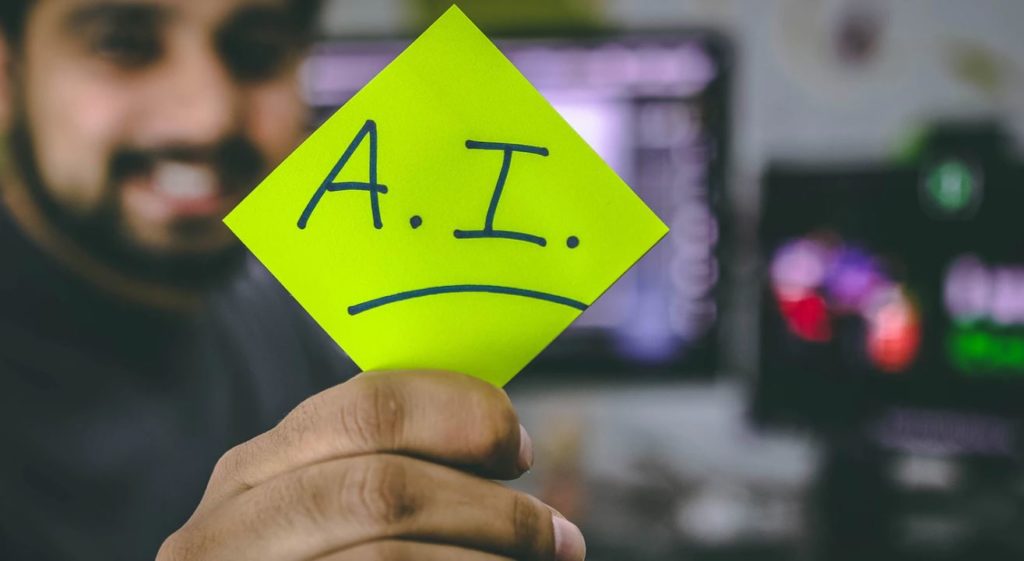Artificial Intelligence (AI) is a revolutionary technology that has shown promising growth in the majority of industries across the globe. The technology has positively disrupted sectors such as healthcare and education and enabled professionals to utilize their true potential and forget about the mundane tasks that are time-consuming as well.

Machine learning and Natural Language Processing (NLP) can be considered the basis for AI as these equip an AI system to learn new things with each interaction with the humans. The seamless integrating abilities of AI allow it to maintain the flow of information into any commercial or non-commercial system. This is another reason that many industries are implementing AI-based Enterprise Resource Planning (ERP) systems that can interact with humans, recognize their faces, recognize objects, and perform tasks as per their vocal instructions. Such benefits of AI have made it a global industry that is now being integrated into every other industry.
The global AI market is getting bigger with every passing day. The artificial intelligence market forecast suggests that the market is growing with a Compound Annual Growth Rate of approximately 40 percent and it is likely to sustain it till 2020. The current global value of AI market is $3.5 billion and it is expected to reach $26.4 by 2023. The technology is extensively being used in the field of robotics due to specific perks such as image recognition, object recognition, speech recognition, etc. Industry experts are also suggesting that the AI is evolving so fast that it can start replacing the human workforce from analytical roles and responsibilities in the next 7-10 years. The phenomenon is expected to replace approximately 2 million humans in the coming years across the globe. The situation is also likely to escalate by 2030 and only highly skilled and experienced professionals will be able to keep their jobs.
5 Reasons for the Boost of AI in 2025:
AI has already started to replace front-desk officials from the hospitality industry and automated a wide range of processes. Here is a look at how AI is going to automate the processes and get a boost in terms of implementation by 2025.
- Automated Customer Interactions: AI is being used in the chatbots on websites and it is likely to replace customer service executives in the coming years. The hospitality industry is going to be the biggest beneficiary of the technology as it involves customer interaction at every possible avenue. AI can automate the responses by accessing the core data and informing customers. This will marginalize the possibility of poor customer interaction as the customers also know that the information provided by the AI terminal is coming from the central database of the hotel.
- Improved Organizational Processes: AI can improve processes in any organizations through AI-enabled chatbots, ERP systems, and process automation. This will reduce the burden from employees and encourage them to learn and execute operations that are only achievable through human intellect. Thousands of sensors in a facility can collect an send the data to the central system where it can be processed for evaluating the effectiveness of the system and maintaining the desired workflow.
- Data-Mining: Cloud-based AI is capable of finding data spread across the online landscape and processing it. This is an integral part of data mining and big data processing. AI can accomplish both the operations and aid organizations with an edge over their competition.
- Real-Time Assistance: Many businesses belong to a niche that requires constant communication and updates. AI can be quite helpful in such a scenario as it can both receive and provide real-time updates through a number of devices. Transport industry such as train, bus, and aircraft can utilize the data received in real-time. AI-enabled terminals and systems can provide vital information to the concerned authorities that can be utilized on a real-time basis.
- Predictive Analysis: As the name suggests, AI replicates human intelligence and learn things on every interaction. Such an approach allows AI to learn things and store information in its database. The technology can then utilize this data for predicting outcomes for specific situations. Before, AI no software or technology was able to forecast. The best they could do was to present the data based on the entered information. However, AI is different as it can analyze the data and predict the ou6tcomes similar to humans.
AI is all set to change the world dominated by humans as it is going to be the next stakeholder on this planet. The technology is slowly learning new things and making it useful for industries and people. Even the most basic of AIs such as Alexa and Siri are capable of remembering the choices and preferences of people. However, increasing dependency on such technologies may become an issue in the near future. This is one aspect on which industry experts and experienced professionals are worried about.

